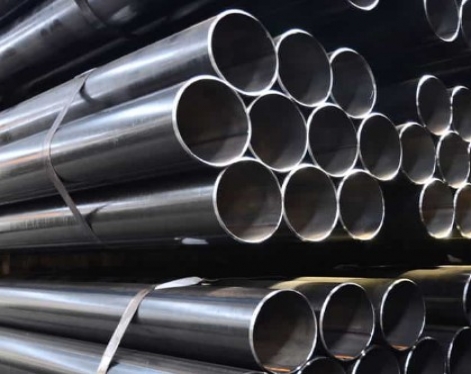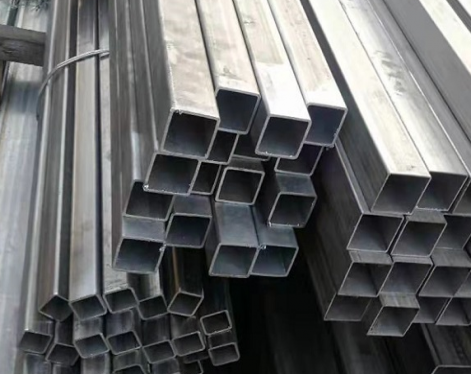Boiler tubes are key components in boiler systems, and their thermal cycle performance directly affects the safety, efficiency and life of the boiler. Thermal cycling performance refers to the mechanical properties and structural stability of a material during repeated heating and cooling. Boiler tubes undergo frequent thermal cycles during operation, so their thermal cycle performance is particularly important.
The following discusses the thermal cycling performance of boiler tubes in detail from the aspects of material properties, stress changes during thermal cycling, failure mechanisms, and improvement measures.
Boiler tube material characteristics
Boiler tubes are usually made of high temperature resistant and corrosion resistant alloy steel materials, such as carbon steel, low alloy steel, stainless steel, etc. These materials have the following characteristics:
High temperature strength: It can maintain high mechanical strength even at high temperatures.
Oxidation resistance: It is able to resist high temperature oxidation and corrosion.
Moderate thermal expansion coefficient: It can reduce the accumulation of thermal stress during thermal cycling.
Good welding performance: It is convenient for manufacturing and repair.
However, even if the material has excellent performance, boiler tubes may still suffer from fatigue, creep, oxidation and other problems under long-term thermal cycling.
Stress changes during thermal cycling
Boiler tubes undergo repeated heating and cooling during operation, which causes thermal stress inside the material. Thermal stress mainly comes from the following aspects:
Temperature gradient: There is a temperature difference between the inner and outer walls of the boiler tube, which causes uneven material expansion.
Thermal expansion and contraction: Materials expand when heated and contract when cooled. This repeated deformation can cause stress concentrations.
Constraints: The way the boiler tubes are connected to other components may restrict their free expansion, thus creating additional stresses.
During thermal cycling, these stresses accumulate and may eventually cause material fatigue or cracking.

Thermal cycling failure mechanism
The failure mechanisms of boiler tubes under thermal cycling mainly include the following:
Thermal fatigue: Repeated thermal stress causes microcracks to form inside the material, which gradually expand and eventually lead to fracture.
Creep: Under high temperature and continuous stress, the material will undergo slow plastic deformation, resulting in thinning of the wall thickness or local bulging.
Oxidation and corrosion: Under high temperature conditions, the surface of boiler tubes will react with oxygen or water vapor to form an oxide layer or corrosion products, which will weaken the mechanical properties of the material.
Structural changes: Long-term high temperature exposure may cause phase change or grain coarsening of the material's internal structure, reducing its strength and toughness.
These failure mechanisms often interact with each other and accelerate the damage of boiler tubes.
Factors affecting thermal cycling performance
The thermal cycle performance of boiler tubes is affected by many factors, including:
Material selection: Different materials have great differences in heat resistance, oxidation resistance and fatigue performance.
Operating temperature: The higher the temperature, the more significant the thermal stress and creep effects.
Frequency of thermal cycling: Frequent heating and cooling can accelerate fatigue damage.
Medium environment: The medium inside and outside the boiler tube (such as steam, flue gas, water, etc.) may corrode or oxidize the material.
Manufacturing process: The quality of welding, heat treatment and other processes directly affects the performance of boiler tubes.
Measures to improve thermal cycling performance
In order to extend the service life of boiler tubes, the following measures can be taken:
Optimize material selection: Select alloy materials with better high temperature resistance and fatigue resistance, such as chromium-molybdenum steel, nickel-based alloys, etc.
Improved design: Reduce stress concentration and temperature gradient by optimizing the structural design of boiler tubes.
Surface treatment: Use coating or diffusion technology to improve the oxidation resistance and corrosion resistance of boiler tubes.
Control operating parameters: Reasonably control the operating temperature and pressure of the boiler to avoid frequent starts and stops.
Regular inspection and maintenance: Use non-destructive testing techniques (such as ultrasonic and radiographic testing) to promptly detect defects and perform repairs or replacements.
Challenges in practical applications
In practical applications, the thermal cycling performance of boiler tubes faces many challenges:
Complex operating conditions: The boiler system may need to operate under different loads, resulting in more complex thermal cycle conditions.
Long-term operation: Boiler tubes usually need to operate for decades, and the long-term stability of their performance is crucial.
Economical: High-performance materials and improvements may increase costs, and a balance needs to be found between performance and economical.
Future development direction
With the development of boiler technology and the improvement of environmental protection requirements, the research on thermal cycle performance of boiler tubes will develop in the following directions:
New material research and development: Development of higher performance heat-resistant alloys and composite materials.
Intelligent monitoring: Utilize sensors and big data technology to monitor the status of boiler tubes in real time and predict their lifespan.
Green manufacturing: using environmentally friendly materials and processes to reduce the impact on the environment.
Conclusion
The thermal cycling performance of boiler tubes is a key factor affecting the safety and efficiency of boiler systems. Through rational material selection, optimized design, improved processes, and enhanced maintenance, the thermal cycling performance of boiler tubes can be effectively improved, thereby extending their service life. However, practical applications still face the challenges of complex operating conditions and long-term operation. Further research into new materials and intelligent technologies is needed to meet even higher performance requirements.
Read more: Storage conditions of boiler tubes
The following discusses the thermal cycling performance of boiler tubes in detail from the aspects of material properties, stress changes during thermal cycling, failure mechanisms, and improvement measures.
Boiler tube material characteristics
Boiler tubes are usually made of high temperature resistant and corrosion resistant alloy steel materials, such as carbon steel, low alloy steel, stainless steel, etc. These materials have the following characteristics:
High temperature strength: It can maintain high mechanical strength even at high temperatures.
Oxidation resistance: It is able to resist high temperature oxidation and corrosion.
Moderate thermal expansion coefficient: It can reduce the accumulation of thermal stress during thermal cycling.
Good welding performance: It is convenient for manufacturing and repair.
However, even if the material has excellent performance, boiler tubes may still suffer from fatigue, creep, oxidation and other problems under long-term thermal cycling.
Stress changes during thermal cycling
Boiler tubes undergo repeated heating and cooling during operation, which causes thermal stress inside the material. Thermal stress mainly comes from the following aspects:
Temperature gradient: There is a temperature difference between the inner and outer walls of the boiler tube, which causes uneven material expansion.
Thermal expansion and contraction: Materials expand when heated and contract when cooled. This repeated deformation can cause stress concentrations.
Constraints: The way the boiler tubes are connected to other components may restrict their free expansion, thus creating additional stresses.
During thermal cycling, these stresses accumulate and may eventually cause material fatigue or cracking.

Thermal cycling failure mechanism
The failure mechanisms of boiler tubes under thermal cycling mainly include the following:
Thermal fatigue: Repeated thermal stress causes microcracks to form inside the material, which gradually expand and eventually lead to fracture.
Creep: Under high temperature and continuous stress, the material will undergo slow plastic deformation, resulting in thinning of the wall thickness or local bulging.
Oxidation and corrosion: Under high temperature conditions, the surface of boiler tubes will react with oxygen or water vapor to form an oxide layer or corrosion products, which will weaken the mechanical properties of the material.
Structural changes: Long-term high temperature exposure may cause phase change or grain coarsening of the material's internal structure, reducing its strength and toughness.
These failure mechanisms often interact with each other and accelerate the damage of boiler tubes.
Factors affecting thermal cycling performance
The thermal cycle performance of boiler tubes is affected by many factors, including:
Material selection: Different materials have great differences in heat resistance, oxidation resistance and fatigue performance.
Operating temperature: The higher the temperature, the more significant the thermal stress and creep effects.
Frequency of thermal cycling: Frequent heating and cooling can accelerate fatigue damage.
Medium environment: The medium inside and outside the boiler tube (such as steam, flue gas, water, etc.) may corrode or oxidize the material.
Manufacturing process: The quality of welding, heat treatment and other processes directly affects the performance of boiler tubes.
Measures to improve thermal cycling performance
In order to extend the service life of boiler tubes, the following measures can be taken:
Optimize material selection: Select alloy materials with better high temperature resistance and fatigue resistance, such as chromium-molybdenum steel, nickel-based alloys, etc.
Improved design: Reduce stress concentration and temperature gradient by optimizing the structural design of boiler tubes.
Surface treatment: Use coating or diffusion technology to improve the oxidation resistance and corrosion resistance of boiler tubes.
Control operating parameters: Reasonably control the operating temperature and pressure of the boiler to avoid frequent starts and stops.
Regular inspection and maintenance: Use non-destructive testing techniques (such as ultrasonic and radiographic testing) to promptly detect defects and perform repairs or replacements.
Challenges in practical applications
In practical applications, the thermal cycling performance of boiler tubes faces many challenges:
Complex operating conditions: The boiler system may need to operate under different loads, resulting in more complex thermal cycle conditions.
Long-term operation: Boiler tubes usually need to operate for decades, and the long-term stability of their performance is crucial.
Economical: High-performance materials and improvements may increase costs, and a balance needs to be found between performance and economical.
Future development direction
With the development of boiler technology and the improvement of environmental protection requirements, the research on thermal cycle performance of boiler tubes will develop in the following directions:
New material research and development: Development of higher performance heat-resistant alloys and composite materials.
Intelligent monitoring: Utilize sensors and big data technology to monitor the status of boiler tubes in real time and predict their lifespan.
Green manufacturing: using environmentally friendly materials and processes to reduce the impact on the environment.
Conclusion
The thermal cycling performance of boiler tubes is a key factor affecting the safety and efficiency of boiler systems. Through rational material selection, optimized design, improved processes, and enhanced maintenance, the thermal cycling performance of boiler tubes can be effectively improved, thereby extending their service life. However, practical applications still face the challenges of complex operating conditions and long-term operation. Further research into new materials and intelligent technologies is needed to meet even higher performance requirements.
Read more: Storage conditions of boiler tubes
Previous:Mild Steel Casing Pipe









